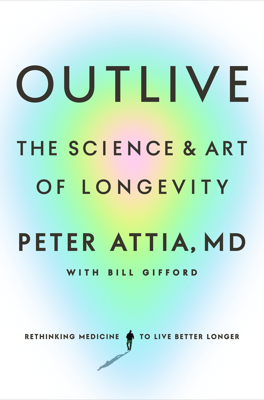Nutrition 3.0: You Say Potato, I Say “Nutritional Biochemistry”
The Challenge of Discussing Nutrition
Peter Attia describes his reluctance to engage in discussions about diet and nutrition at social events due to the complexity and contentious nature of the topic. He likens the difficulty of simplifying nutritional theories to physicist Richard Feynman's challenge of explaining his Nobel-winning work simply at a party.
Concept of Nutritional Biochemistry
Attia proposes shifting the conversation from diet to "nutritional biochemistry" to focus on the scientific aspects rather than emotional or ideological battles. He emphasizes that nutritional advice should be personalized, backed by data, and free from one-size-fits-all ideologies.
Fundamental Questions in Nutritional Biochemistry
To address nutritional issues effectively, Attia suggests asking three critical questions to identify the right nutritional approach for an individual:
- Are you undernourished or overnourished?
- Are you undermuscled or adequately muscled?
- Are you metabolically healthy?
The common goal is usually to reduce caloric intake while increasing protein consumption and pairing this with appropriate exercise.
Limitations of Current Nutritional Science
Attia points out the significant limitations within nutritional science, which is plagued by poor-quality research and confusing media reports. This climate fosters an environment where dietary myths can flourish unchecked.
Epidemiology and Its Limitations
Epidemiological studies, which look for correlations in large data sets, are criticized for their inability to distinguish correlation from causation. Attia uses the example of diet soda studies to illustrate how epidemiology can mislead by not considering the direction of causality.
Clinical Trials in Nutrition
Nutritional clinical trials offer more control but are still flawed due to issues like sample size, duration, and participant compliance. Attia asserts that true randomized controlled trials (RCTs) in nutrition are exceedingly rare and difficult due to the challenges in ensuring dietary compliance over long periods.
Case Study: The PREDIMED Trial
The PREDIMED study, which examined the effects of a Mediterranean diet supplemented with nuts or olive oil compared to a low-fat diet, is discussed. The trial was halted early due to significant benefits observed in the Mediterranean diet groups, demonstrating a considerable impact on reducing heart disease risk. However, Attia notes that individual results vary widely, and what works for one may not work for another.
Concluding Thoughts on Nutrition
Attia concludes that while diet can be a powerful tool for correcting metabolic health issues, its effects on extending lifespan and healthspan are limited compared to the benefits of exercise. He advocates for a personalized approach to nutrition that considers individual metabolic health, lifestyle, and personal preferences.
The chapter emphasizes the complexity of nutritional science and the necessity of moving beyond one-size-fits-all dietary solutions. It calls for a focus on scientific rigor and personalized nutrition plans tailored to individual needs and goals.
